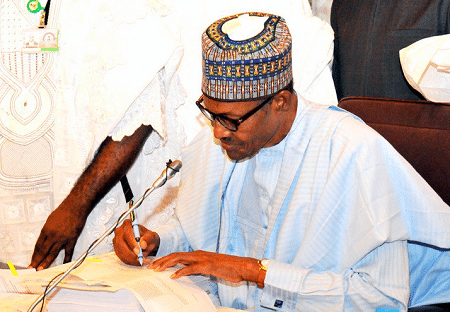FG in last minute moves to avert Labour’s planned strike

..Demand for N494,000 wage to cost N9.5tr
BY OGAH OCHECHE & UKPONO UKPONG
The Federal Government is making frantic efforts to avert Labour’s planned nationwide strike action, declaring that an indefinite strike was not the solution in the present circumstance. FG has therefore asked the Nigeria Labour Congress, the Trade Union Congress and their affiliates to shelve their proposed indefinite strike action.
It pleaded with the labour to return to the negotiation table in the interest of the country.
It said the insistence of the labour on N494, 000 minimum wage will cost the government N9.5trillion which the economy cannot accommodate.
But the government said out of the three parties involved in the tripartite negotiation on the new minimum wage, both the Federal Government and the Organized Private Sector have agreed on N60,000 pay but only the labour rejected the proposal.
The Minister of Information and National Orientation, Mallam Mohammed Idris, who addressed an emergency briefing in Abuja last night, said “indefinite strike action is not the solution to the demand for a new minimum wage.”
READ ALSO: Keyamo suspends controversial $300 helicopter landing…
Speaking on the position of the government, the Minister asked the labour to embrace dialogue and have a rethink on indefinite strike action.
He said: “The FG therefore, calls on all parties to embrace reasonable and realistic dialogue that will result in the proper resolution of the impasse.
“I am therefore appealing to the Labour to return to the negotiation table in the interest of Nigeria.
“Indefinite strike action is not the solution. It will rather complicate the situation. Our appeal is that they should shelve that strike, rethink the strike because it is not in the interest of Nigerians.”
CONTINUES ON PAGE 2
Idris said the N494,000 minimum wage being demanded by the labour will cost the government about N9.5trillion to cater for about 1,2million workers.
He pleaded with the labour to put the interest of the other 200million Nigerians in mind.
He gave insights into how the government decided to increase the minimum wage by 100 per cent.
He added: “On Tuesday, 28th May 2024, the Tripartite Committee, comprising 36 members – FG 12, NLC 12, and Organized Private Sector 12, met and the FG made the offer of N60,000 per month, to workers.
“The Federal Government’s New Minimum Wage proposal amounts to a 100% increase on the existing minimum wage of 2019. Labour, however, wanted N494,000, which would be an increase of 1,547% on the existing wage.
“The sum of N494,000 national minimum wage which Labour is seeking would cumulatively amount to the sum N9.5 trillion bill to the Federal Government of Nigeria.
“It is important for Nigerians to understand that whereas the FG is desirous of ample remuneration for Nigerian workers, but what is most critical is that the President Bola Ahmed Tinubu will not encourage any action that could lead to massive job loss.
“Whereas the Labour is keen on the take-home pay of about 1.2 million workers, the Federal Government is concerned with the welfare of 200m+ Nigerians. This is because, the FG’s Guiding Principle is: Affordability, Sustainability, and the overall Health of the nation’s economy.
“Even before the discussions on the national minimum wage, the Federal Government granted N35,000 wage award for all treasury-paid Federal Workers
“The FG therefore, calls on all parties to embrace reasonable and realistic dialogue that will result in the proper resolution of the impasse.”
Idris said apart from the minimum wage, President Bola Ahmed Tinubu has floated 12 palliatives for Nigerians.
He gave the breakdown as follows:
· The N125billion Conditional Grant and Financial Inclusion to MSMEs.
· N100 billion for the procurement of CNG fueled buses and CNG conversion kits.
· N25,000 each to be shared to 15 million households for 3 months.
· N185 billion palliatives (loans to states) to cushion the effects of fuel subsidy removal.
· N200 billion to support the cultivation of 500,000 hectares of land to boost food production.
· Release of 42,000 metric tons of grains from the Strategic Reserves.
· Purchase and onward distribution of 60,000 metric tons of rice from the rice millers association.
· Recent salary increase of 25-35% on all consolidated salary structures for federal workers.
· 90% subsidy on health costs for federal civil servants registered on NHIS.
· In the last one week about 60,000 Student Loan Applications were received out of which 30,000 were successful. The Portal will be opened for students from state-owned tertiary institutions, from June 25th, 2024.
· Light rail commissioned in Abuja to relieve transportation costs till the end of the year.
· In addition to the freedom of civil servants to engage in agriculture, the federal government has approved the inclusion of ICT services as alternative sources of income.
Meanwhile, the Minister of Labour and Employment, Barr. Nkeiruka Onyejoecha has warned against strike action, declared that the Nigerian Labour Congress (NLC) and the Trade Union Congress (TUC), emphasising its adverse impact on economy and citizens.
This is as she stressed that the proposed nationwide strike, set to commence on Monday, June 3, is not in the best interest of the country and its people.
The Minister, in a statement by her media aide, Emameh Gabriel, noted that the “government has consistently demonstrated commitment and goodwill throughout the negotiations with organised labour”.
She explained that the government’s proposals were carefully crafted, taking into account the country’s economic realities and incorporating innovative solutions.
These proposals include a comprehensive package featuring a wage increase to N60,000 for federal workers, the introduction of CNG-fueled buses, and enhanced financial access for Micro, Small and Medium Enterprises (MSMEs). Additionally, the government has pledged investments in strategic sectors such as agriculture, manufacturing, education, healthcare and many others that are already in the pipeline.
The Minister sounded a note of warning that any new minimum wage must not lead to widespread job losses, particularly in the Organised Private Sector, which employs the bulk of the nation’s workforce
“This sector is crucial to the country’s economic growth and stability. The government’s stance is rooted in a deep understanding of the negotiations, demonstrating its dedication to finding a balance between the needs of workers and the economic realities of the country. The goal is to establish a minimum wage that is not only realistic but also sustainable, avoiding any potentially detrimental consequences for the economy.
“By adopting this approach, the government aims to safeguard the interests of both workers and employers, ensuring that any agreement reached is mutually beneficial and does not jeopardise the country’s economic progress. This balanced stance is crucial for maintaining harmony in the workforce and driving national growth”, she explained.
The Minister expressed disappointment that in a surprising turn of events, organised labour abruptly exited the negotiations yesterday, despite the government’s flexibility in rescheduling the meeting from Monday to Friday, May 31st, to accelerate the talks. Labour unions remained adamant in their demand for a staggering 1,547% wage increase after the government’s proposed 100% increase, accompanied by various incentives for workers.
“It is widely acknowledged that the labour unions’ demands are unrealistic, given the country’s current economic position. The government takes into account the nation’s fiscal constraints and the need for sustainable economic growth. In contrast, labour’s demands seem disconnected from the economic realities, potentially jeopardising the very gains they seek to achieve.”
“The government’s willingness to engage in dialogue and its demonstrated flexibility in the negotiations underscore its commitment to finding a mutually beneficial solution. However, labour’s inflexibility and unrealistic expectations may hinder the progress made thus far, ultimately harming the workers they represent and the nation as a whole, the minister added.
She, however, urged the unions to reconsider their decision and continue engaging in constructive dialogue to find a solution that benefits all, as strike will disproportionately harm the most vulnerable segments of our society. She concluded by asking organised labour to continue to respect the principles of social dialogue, engaging in good faith.








